Minister of Higher Education, Science, and Technology: We Don’t Want to Come Off as Authoritarian
Minister of Higher Education, Science and Technology Satryo Soemantri Brodjonegoro explains BRIN’s position in the Prabowo government.
maaf email atau password anda salah

Minister of Higher Education, Science and Technology Satryo Soemantri Brodjonegoro explains BRIN’s position in the Prabowo government.
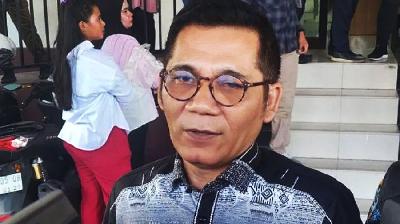
Former North Maluku Governor Abdul Gani Kasuba acknowledged meeting with Bobby Nasution but claimed he gained no advantage from it.

Prabowo Subianto is inheriting an inefficient economy. Yet his new administration is likely to follow Jokowi’s economic model.

South Kalimantan Governor Sahbirin Noor is suspected of receiving commissions on three projects in the e-catalog. He has not been seen since being named a suspect.

Explanations from State Secretary Minister Pratikno and Maritime Affairs and Fisheries Ministry on fishery business and the case of illegal ships in eastern Indonesia.
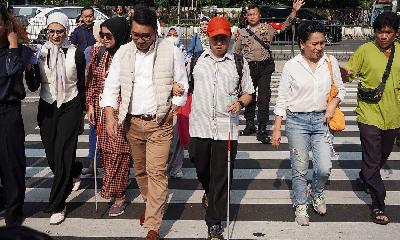
Jakarta governor and deputy governor candidates promise improvements in inclusive public transportation.

The power wheeling scheme is important to end the monopoly in the supply of electricity. It could accelerate the energy transition.

The illegal trade in rhino horns continues even though it is often foiled. This is proof of the weak protection of rhinos in their habitats.
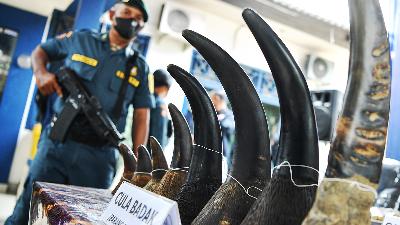
The Environment Ministry thwarted the sale of Javan rhino horns in Palembang. This is linked to a network of Ujung Kulon rhino poachers.

The current account deficit threatens the Indonesian economy. The value of the rupiah could fall further, triggering an economic crisis.
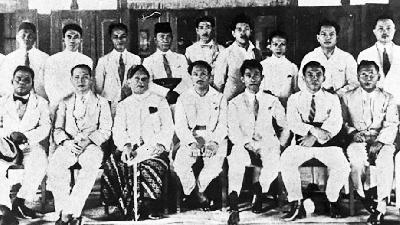
M.H. Thamrin and Sukarno were often seen as opposites in cooperative and non-cooperative movements. In reality, they were close friends.

Javanese Pinocchio left behind a culture of lies in politics. Lie after lie grows into a dirty trick to achieve more power.
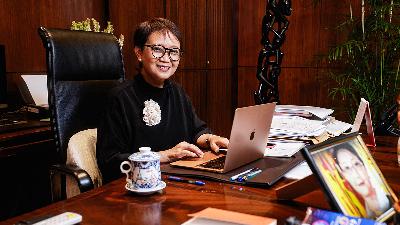
Retno Marsudi dismissed the idea that the government is merely meddling foreign affairs. She emphasized that Indonesia is a trusted partner on the international stage.
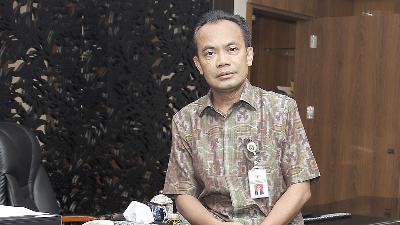
Deputy VI for Regional Development and Spatial Planning Coordination at the Coordinating Ministry for the Economy, Susiwijono Moegiarso, explains the development of national strategic projects, their economic benefits and impact on the environment.
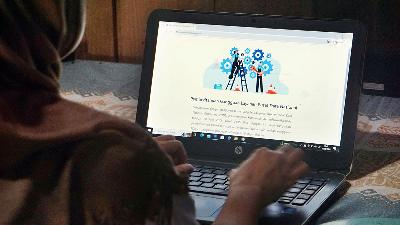
The breach of the National Data Center resulted in the disruption of hundreds of public services. Data infected with viruses cannot be recovered.

An overly ambitious growth target could trap Indonesia’s economy, leading the government to adopt misguided and hazardous policies.

Indonesia's economy poses some hurdles in continuing its growth trajectory. Political transition adds uncertainty.

Tourism and Creative Economy Minister Sandiaga Salahuddin Uno assures that the tourism fee will not be imposed on plane tickets.

The four big banks that dominate the Indonesian banking market are backed by strong capital and major innovations. Small banks will have an even smaller piece of the pie.
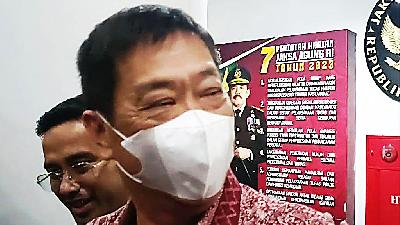
Robert Bonosusatya denies involvement in the Bangka Belitung tin corruption case. He often discusses tin business with other entrepreneurs.
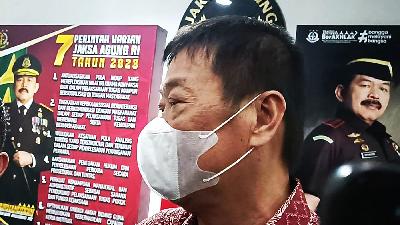
Investigators are tracing the money flow between Robert Bonosusatya and Refined Bangka Tin. Harvey Moeis and Helena Lim played a role.
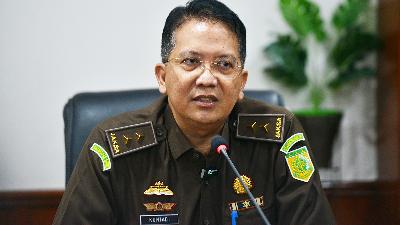
The Attorney General’s Office continues to look for other suspects in the tin sector corruption case. Robert Bonosusatya is also being questioned as a witness.
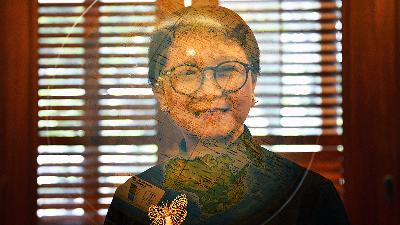
Foreign Affairs Minister Retno Marsudi explains the Gaza war and the Iran-Israel conflict with its impact on Indonesia’s economy.
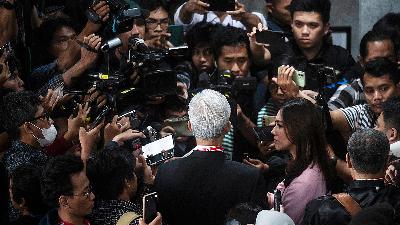
Ganjar Pranowo will be taking up environmental issues after the Constitutional Court’s verdict. Anies is considering joining the Prabowo-Gibran camp.

For Trisno S. Susanto, died March 30, 2024, at the age of 61.

Indigenous people are taking legal action against the President and the DPR for delaying deliberations of a bill. It has taken second place to the interests of investors.

The crime of child pornography is continuing to spread. Perpetrators are able to operate from inside jail.
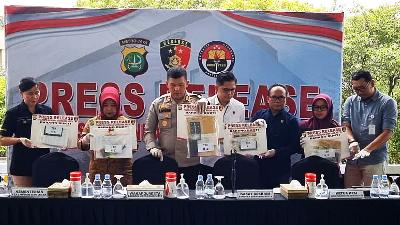
Producers of child pornography content entice their victims with cash and online game vouchers. They also approach victims’ families.

Child pornography rings are operating via various social media platforms. Children are groomed using online games.

Indonesia is among the top producers of child pornography sold overseas. This was revealed following an investigation by the FBI.

Creators of online child pornography admitted to doing it for the money. It started with the habit of watching adult porn videos.
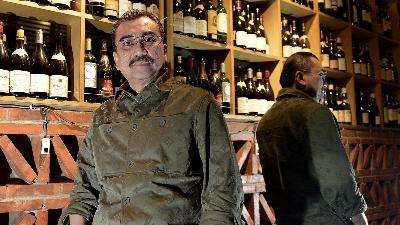
Robert Priantono Bonosusatya denies owning shares in Refined Bangka Tin, the mining company involved in the Bangka Belitung illegal tin case.
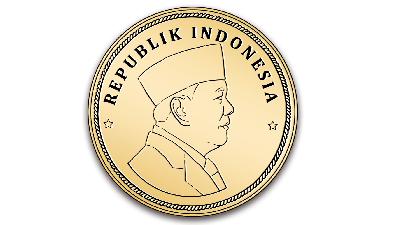
Prabowo shows some changes in his economic approach. The market is unconvinced yet.

Jokowi appoints Agus Harimurti Yudhoyono Minister of Agrarian and Spatial Planning. He is sowing the seeds of influence in the next administration.

KPU Chair Hasyim Asy'ari explains about a host of problems during the 2024 elections as well as the ethical violation KPU committed in Gibran’s nomination registration.
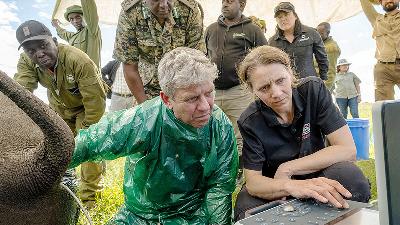
The world’s first embryo transfer was successfully performed on an African white rhino, renewing hope for the Sumatran rhino.
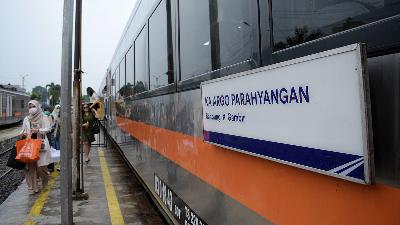
The Jakarta-Bandung high-speed train is considered less competitive than the Argo Parahyangan regular train service. The company is working to boost its non-passenger revenue.
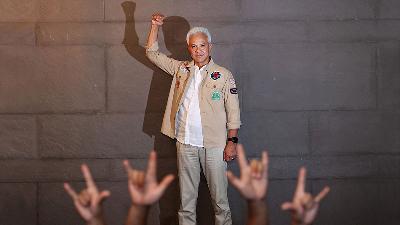
Ganjar Pranowo talks about the campaign, his relationship with the parties and the Jokowi effect.

Sony Karsono’s Sentimentalisme Calon Mayat (The Sentimentalism of a Future Corpse) is Tempo’s 2023 Book of Prose.
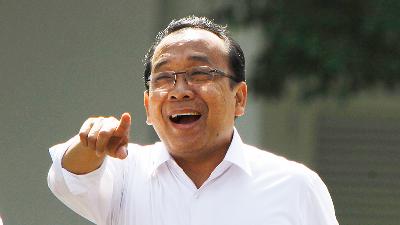
State Secretary Pratikno struggles to repel a barrage of accusations over his alleged involvement in several cases, ranging from the Constitutional Court’s ethical infringement to BTS corruption.
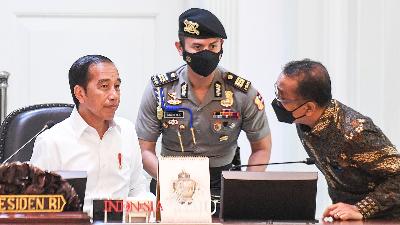
Pratikno helped Joko Widodo rise to the office of Solo Mayor in 2005. He retained his clout at UGM although he was no longer a rector.

State Secretary Pratikno is involved in Jokowi’s various political operations. He lobbied the Constitutional Court into opening the way for Gibran.

Decarbonization is seeing an uptrend in various industrial sectors. Businesses are hoping for incentives and economic benefits.
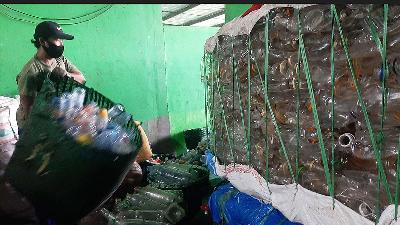
Corporations and local governments reap profits from waste management, generating economic value while encouraging decarbonization at the same time.
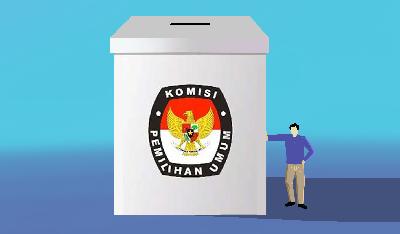
While the threat of higher interest rates has subsided, political uncertainties and expanding global geopolitical conflicts still pose risks to our economy in 2024.

The capital flight takes a U-turn, as portfolio investment funds return to the Indonesian financial market. There is a growing risk of economic slowdown, though.
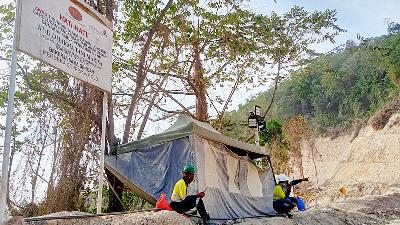
Sandiaga Uno and Garibaldi Thohir’s company is in conflict with local miners. The amount of compensation is considered inadequate.
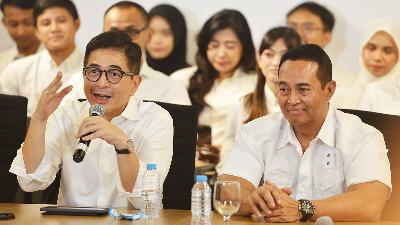
Several key people in President Joko Widodo’s election team are switching allegiance to Ganjar Pranowo. The teams are gearing up to face a strategy battle.

This brutal conflict between Israel and Hamas that has taken thousands of innocent civilian lives is plunging the financial market into deeper uncertainty.

How is Arsjad Rasjid polishing Ganjar Pranowo for the upcoming presidential election?
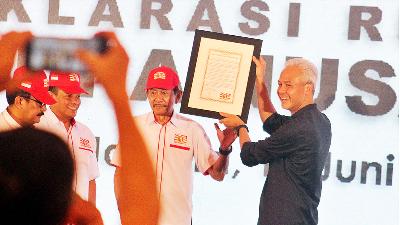
Retired military officers supporting Ganjar Pranowo are striving to raise the popularity of the PDI-P’s presidential candidate. They focus on regions outside Central Java.

Coal-fired PLTUs are the world’s biggest carbon polluters. Green taxonomy revisions open up possibilities for transition-washing.
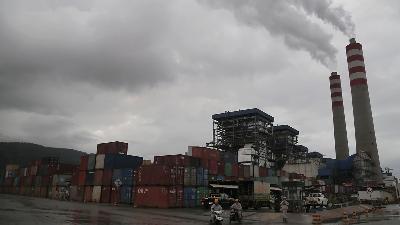
The OJK changes the Green Taxonomy criteria. Coal and palm oil are now in the green category based on aspirations from banks and industry actors.
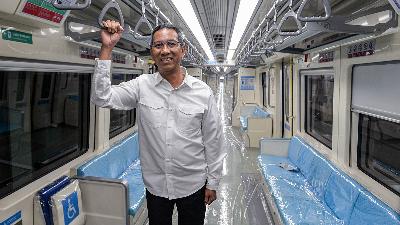
Acting Jakarta Governor, Heru Budi Hartono, on pollution and the future of Jakarta after it is no longer the capital city.

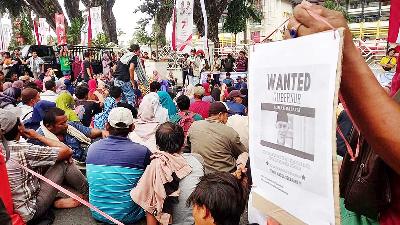
West Sumatra Governor Mahyeldi Ansharullah pushes a mega project worth Rp21,000 trillion, sparking conflicts with the local community.

The Ministry of Health has established the Biomedical and Genome Science Initiative. Its responsibilities overlap with those of BRIN.
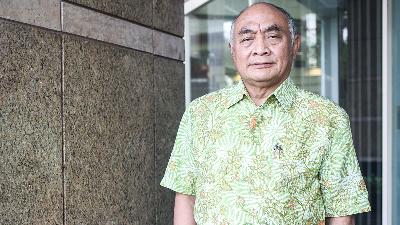
The government faces difficulties accommodating kidney donors and recipients. The need for kidney donors is high, but the supply is very limited.
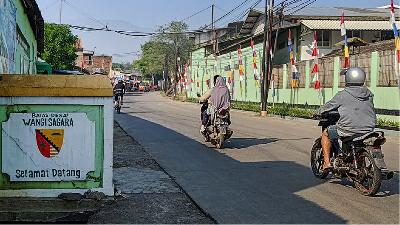
The lives of kidney donors get worse after having the operation. This does not diminish interest among potential kidney donors.
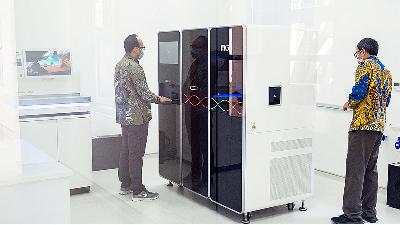
The National Genome Center set up in 2018 is gone. Does it change into the Biomedical and Genome Science Initiative of the Health Ministry?

Central Sulawesi designates six indigenous community forests as strategic areas in its Spatial Planning Design. This is a first for Indonesia.
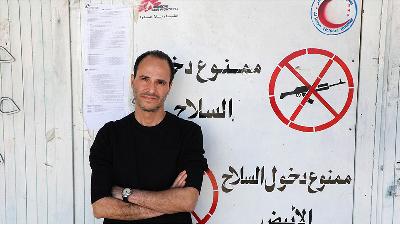
Interview with Christos Christou, International President, Doctors Without Borders (MSF)
“Only 30 percent of the children with TBC in Indonesia were diagnosed.”

China’s economic recovery is slow. It may affect Indonesia’s economic growth target achievement.
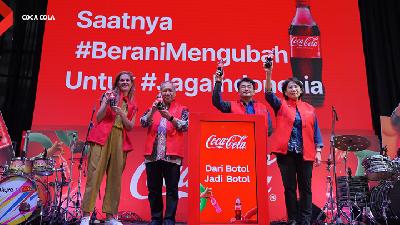
Circular economy is believed to be one of the ways to solve plastic waste problems globally.

This collaboration combines expertise from the academic and industrial worlds through a biotechnology approach.

In Indonesia, the green economy has become nothing more than a slogan. Government policy is now heading in the opposite direction.

There is still considerable uncertainty as to whether indigenous people’s rights would be recognized. A legislative initiative is needed.

It is important to acknowledge that unforeseen events could occur unexpectedly and have significant impacts on the Indonesian economic landscape.

While economic growth in other developing countries is predicted to be lower, the IMF revises its forecast for Indonesia upward, from 4.8 percent to 5 percent.
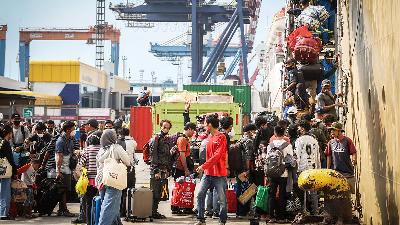
There is an upsurge in the annual return of people to their hometowns or mudik after the repeal of the Covid-related social restrictions. A turnover of trillions of rupiah stimulates the economy.

Investing in Indonesian financial markets is not only considered being a more secure alternative, but it also has the potential to yield higher returns.

The criminalization of Haris Azhar and Fatia Maulidiyanti is a threat to freedom of expression. Indonesia is not worthy of becoming a member of the United Nations Human Rights Council.

Perry Warjiyo is to continue as Bank Indonesia governor. Restoring its independence will be a major challenge.

The governor of the central bank does not need an honorary professorship. The petition from academics opposing the UGM rector’s policy deserves support.
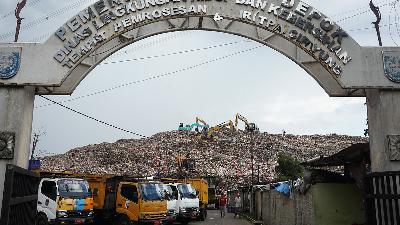
Nearly every waste dump is over-capacity. Technology alone is not enough.

Lukas Enembe is accused of embezzling Papua special autonomy funds. He has repeatedly been named in connection with corruption cases.
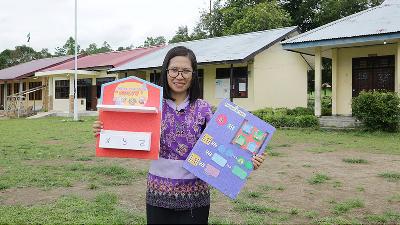
A mathematics teacher in Manokwari, Krisye Kloudia Adimin, transforms the school’s teaching method and interaction with students after joining the Guru Penggerak Program.
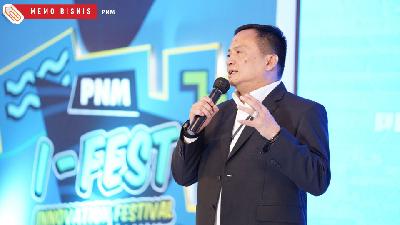
This festival provided a challenge for PNM personnels who have ideas to propose innovations that suits the company's business portfolio. #Infotempo

What does IMF’s Senior Economist Yan Carrière-Swallow have to say about Indonesia’s possible slip into recession?

The acceleration of self-sufficiency in sugar supply is used as an excuse to give monopoly right of imports to a state-owned company. This could trigger corruption.
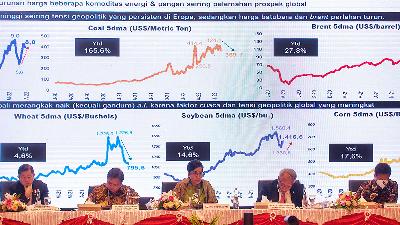
Weekly news capsules, from the threat of an economic crisis to the arrest of Insp. Gen. Teddy Minahasa.

Farmers in social forests can work independently without assistance. They can now work state forests in peace.

There is another crisis of coal supplies for PLN as a result of regulations that are easy for businesses to find a way around. There is no need to establish a public service agency.

The awarding of honorary doctorates to politicians and state officials continues. It is time to have a moratorium and a reexamination of the rules.

Ali Sadikin built roads, schools, and markets from gaming tax. His policies were not hampered by morality.

The unbecoming record of Prabowo Subianto’s participation in the prior two presidential elections makes him unfit to be a candidate leader of the nation. He should select another, more fitting candidate.

Readers’ letters about an access road plan around the Jakarta Governor’s private residence and the exemplary deeds of Hoegeng, Hatta, Gus Dur and Habibie.
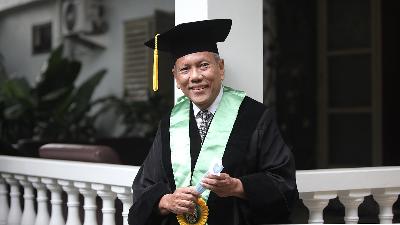
Professor of Medicine of the University of Indonesia Tjandra Yoga Aditama says that the Covid-19 pandemic is not over yet. The next pandemic may be just around the corner.
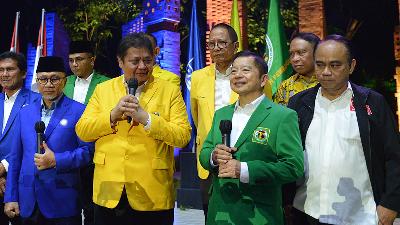
The United Indonesia Coalition is reportedly intended to fulfill President Jokowi’s wish to endorse Ganjar Pranowo.

The environment and forestry ministry classifies forested areas on customary land in North Sumatra as a national forest. This is in breach of a number of regulations.
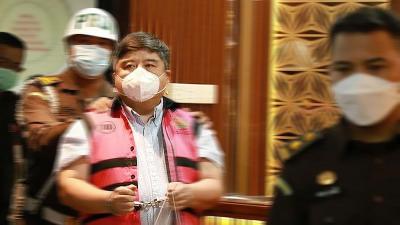
Lin Che Wei insists that he is innocent. Trade Minister Muhammad Lutfi has not given a statement since the cooking oil graft case became public.
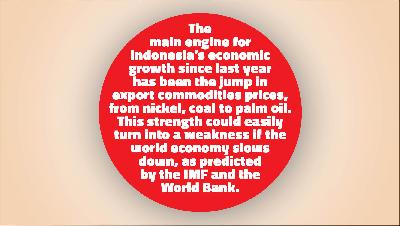
The Indonesian government did not factor in the risk of global economy slowdown in their policies.

Novalia Pisesha invents an effective and affordable medical technology. University and post-graduate students look to her to study nanobody technology in curing autoimmune diseases.
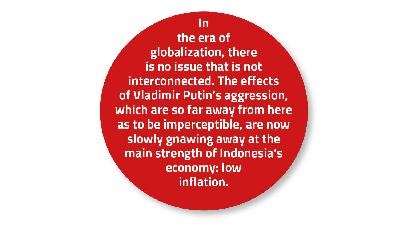
The consequences of the Russia-Ukraine conflict are dire, not just for the financial market but also for the global economy which is still in tatters and recovering.
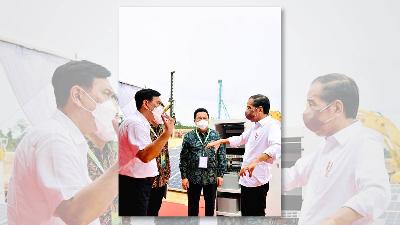
There is an aroma of collusion and nepotism hanging around the concession to develop the Indonesian Green Industrial Park in North Kalimantan. Luhut Pandjaitan and Boy Thohir are behind it.

Embezzlement of national economic recovery assistance funds continues. The ramshackle budgeting system provides opportunities for corruption.

The statistic for depression among young people is on the rise. The government must not ignore this mental health problem.

Education is the best means of building tolerance. However, this must be without compulsion and must not be turned into a project.

Exploration of the Tuna Block’s second well is continuing despite protests from China. Oil and gas production in the North Natuna Sea is very cost-efficient.

Indigenous women are fighting back against companies and powerful people who are wrecking their environment. The law must protect their collective rights.
Independent journalism needs public support. By subscribing to Tempo, you will contribute to our ongoing efforts to produce accurate, in-depth and reliable information. We believe that you and everyone else can make all the right decisions if you receive correct and complete information. For this reason, since its establishment on March 6, 1971, Tempo has been and will always be committed to hard-hitting investigative journalism. For the public and the Republic.